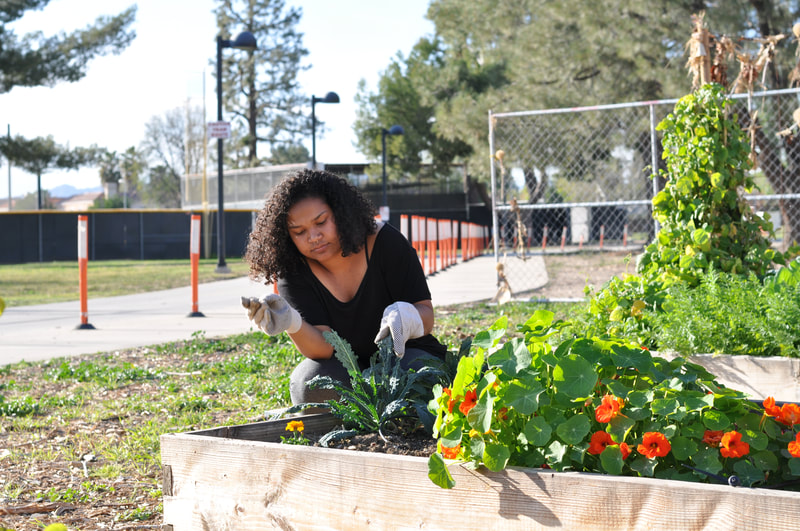
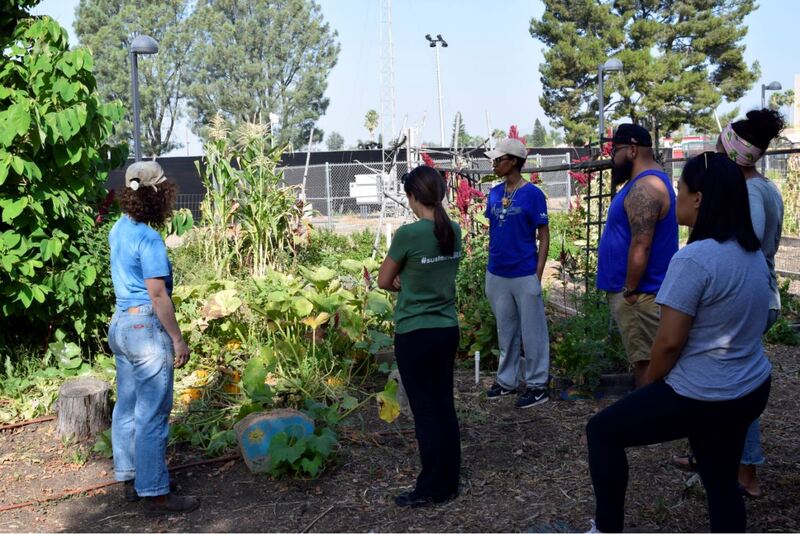
Through efforts stemming from its Bee Campus USA status, CSUN has incorporated pollinator-related content into courses, workshops, events, and presentations. The campus has added thousands of square feet of pollinator habitat guided by a formal Pollinator Habitat Plan, and installed educational signage identifying protected pollinator habitats, plants, and their pollinators.
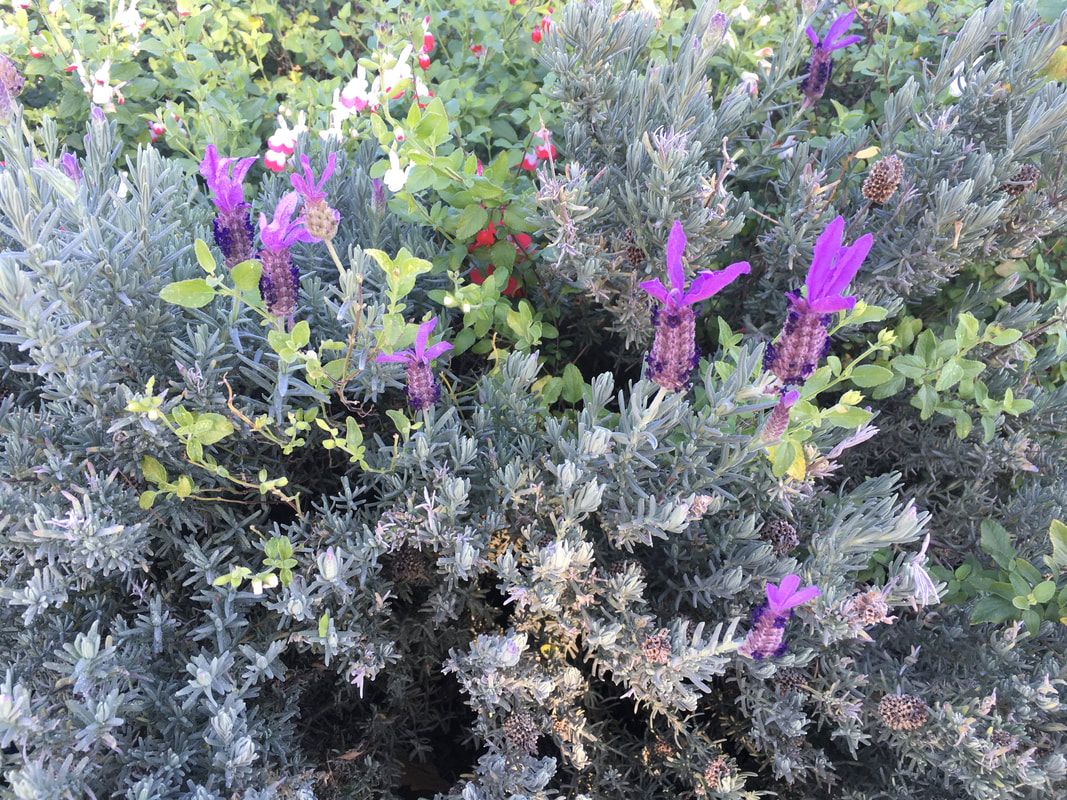
CSUN hosted a variety of pollinator-related education and outreach events in 2019 including work days at the Institute for Sustainability’s Sustainable Garden Education Center, Sustainability Day, garden workshops and tours, conferences, farmers markets, and pollinator pocket community beautification.
Sustainable Garden Education Center Work Days
Garden work days are a staple of service learning and hands-on sustainability education at CSUN’s Institute for Sustainability’s Sustainable Garden Education Center. Throughout the year volunteers help plant, water, pull weeds, compost, fertilize, and harvest various plants and produce in the garden. Through this process, volunteers learn about sustainable food systems, and the vital role that pollinators play in food production.
Sustainability Day (October 24)
CSUN’s 2019 Sustainability Day focused on the topic of biodiversity loss, and highlighted examples of loss and how it impacts different populations, ecosystems, and cultures. CSUN biology professor Dr. Rachel Mackelprang discussed the various threats that honey bee populations face worldwide, and the invaluable role they play in pollinating numerous food products. She also discussed the research she performs on honey bees in CSUN’s campus orange grove. The final session of the event was a garden workshop highlighting ways to make your green space more pollinator-friendly, including adding pollinator-friendly species and habitat structures. Attendees also learned about the many advantages of having pollinators in their gardens.
Garden Workshops and Tours
CSUN’s Institute for Community Health and Wellbeing hosts a Walkability Wednesday series that invites campus members to take a themed tour of the university led by a subject-matter expert. In collaboration with the Institute for Sustainability, a sustainability-themed tour was launched to highlight a number of CSUN’s sustainability accomplishments, including the campus’ efforts to promote and protect pollinators.
Pollinator Pocket Community Beautification
The Institute for Sustainability initiated a “pollinator pocket” community beautification project with the Northridge Beautification Foundation and Council District 12. This partnership will lead to multiple pollinator habitats in underutilized city spaces around CSUN. More information at: https://csunshinetoday.csun.edu/health-and-fitness/pocketful-of-pollen-csun-partners-with-community-on-havens-for-pollinators/
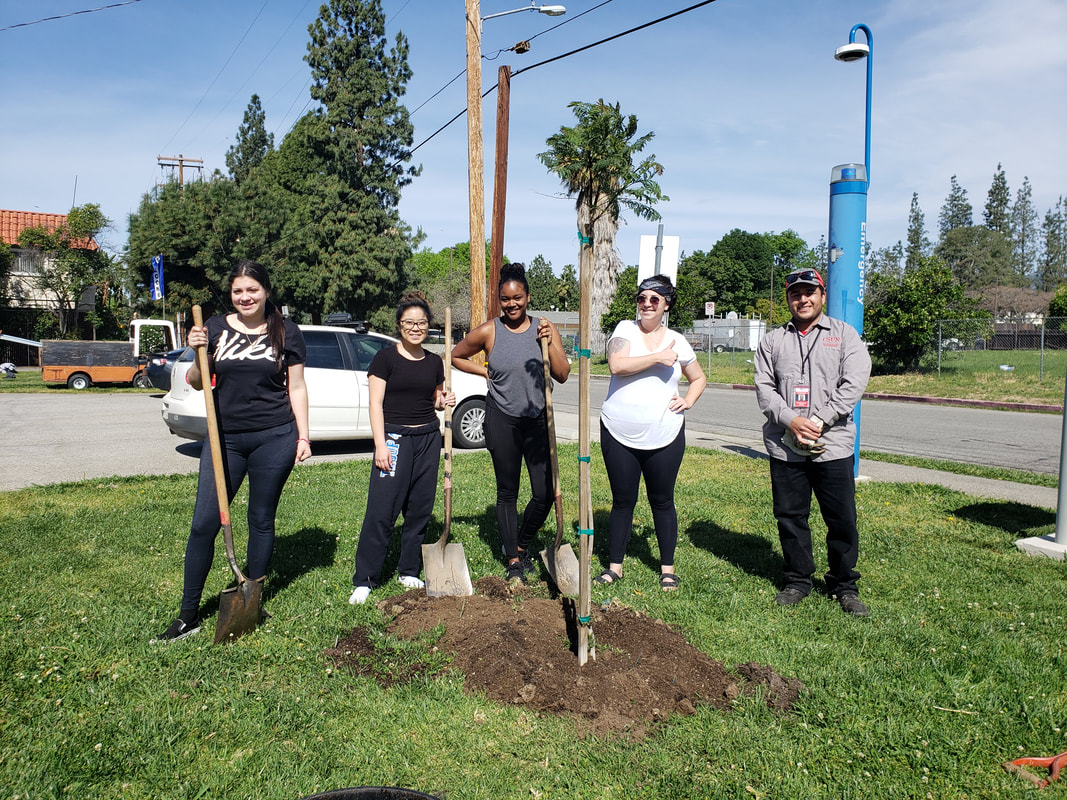
Most of CSUN’s pollinator habitat efforts in the past year were undertaken by the campus Grounds team. CSUN is located in a drought-prone region, and members of this team perform a number of landscaping renovations each year to replace water-intensive turfgrass with native, drought-tolerant species. Expanding pollinator habitat is now a key function of their work and future efforts will be aligned with pollinator-friendly landscaping principles to continuously expand pollinator habitats on the campus. Over the course of the last year, turfgrass was replaced with drought-tolerant pollinator-supporting native plants in three areas of the campus: two patches of lawn on the north and west sides of Sequoia Hall, and another on the east side of Redwood hall.
Students and volunteers play a role in other habitat expansion events. A tree planting held each year during Earth Fair features the installation of several trees, some of which are native and many flowering. Earth Fair attendees are invited to participate in planting the trees and learn about the role trees play in providing pollinator habitats and other valuable ecosystem services.
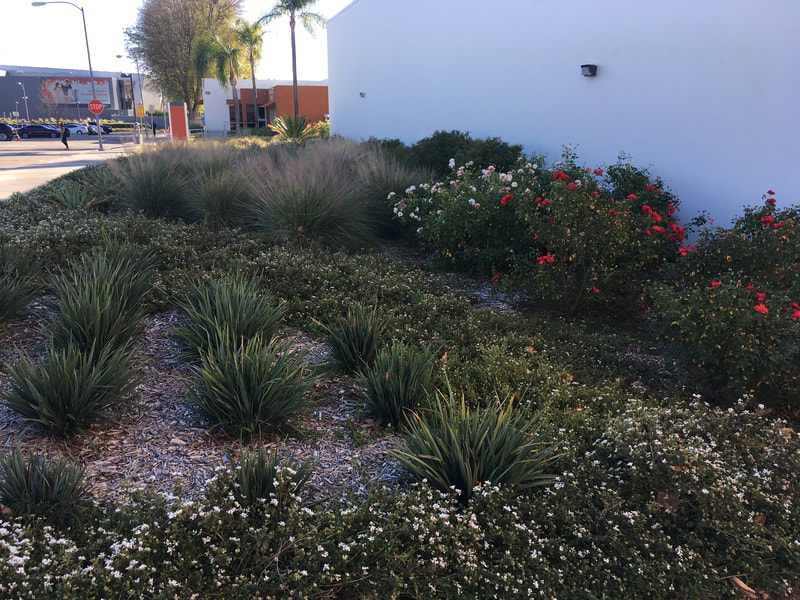
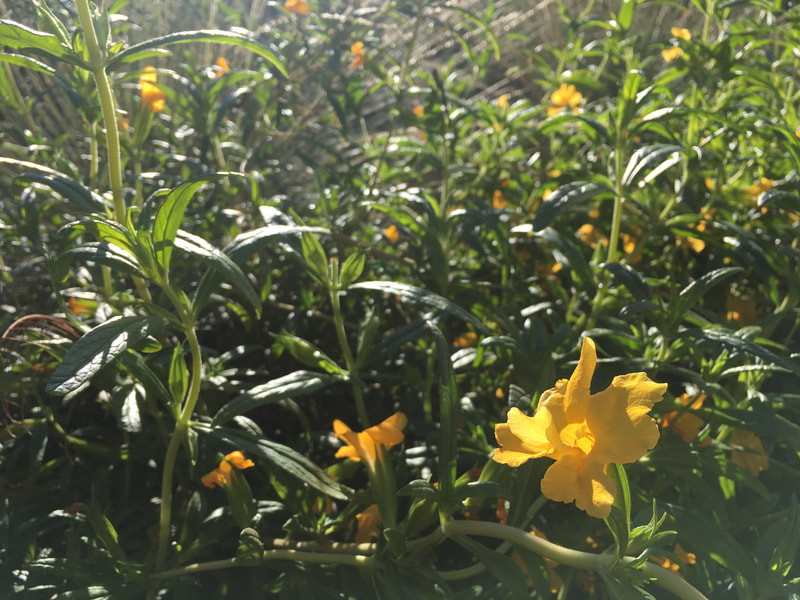
Six service learning classes completed projects in the Sustainable Garden Education Center’s pollinator garden. Classes included Liberal Studies (Minor in Sustainability), Biology, Communications, Geography (2), and Community and Civil Engagement. Each class offered students 5 to 20 hours of service learning with approximately 450 service-learning students at the garden. The Biology class had approximately 84 students with more than 10 hours each at the garden. Three of these classes received funding from the Office of Community Engagement for projects including purchasing plants and seeds of pollinator-friendly plants.
Service learning activities at the garden teach students about the role pollinators play in sustainable food systems and give them the opportunity to participate in organic gardening practices. Students harvest over 30 edible plant species and donate surplus food to the CSUN Food Pantry. These donations totaled over 500 pounds of fresh produce in 2019.
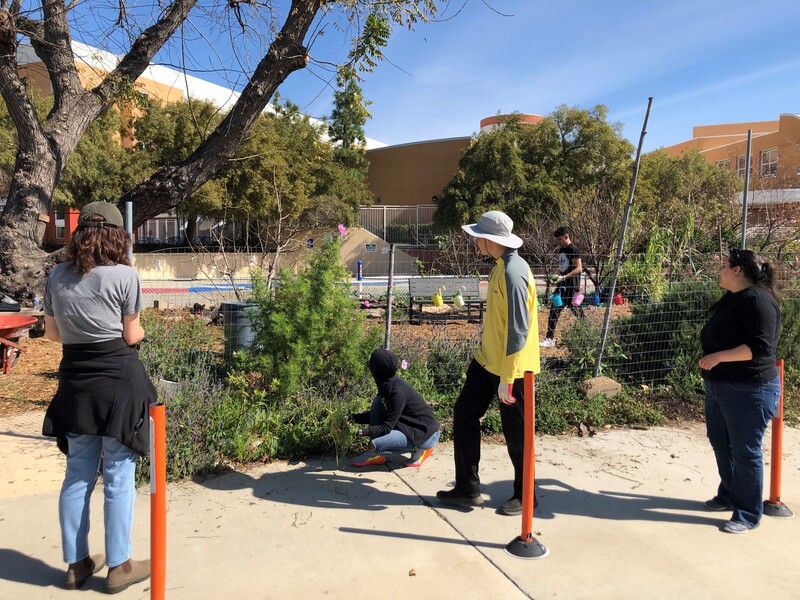

Pollinator topics were addressed in a number of for-credit courses in 2019. Biologic Principles, Entomology, Bacterial Diversity, Conservation Biology, Evolutionary Biology, Plant Ecology, Flowering Plant Systematics, and Ecology and People all included pollinator-related topics.
Some of these courses examine the relationship between plants and their pollinators, others look at threats and conservation efforts impacting pollinator populations, the mechanics of pollination, the impacts of humans and pollinators upon each other, and other aspects of plant – human – pollinator relationships.
Outside of for-credit courses, CSUN hosted a pollinator protection workshop as part of its 2019 annual Sustainability Day. Attendees learned about different native plants and the benefits they provide to pollinators as habitats and food sources. Attendees also received guidance on planting different species for drought tolerance, soil health, pollinator promotion, and food production.
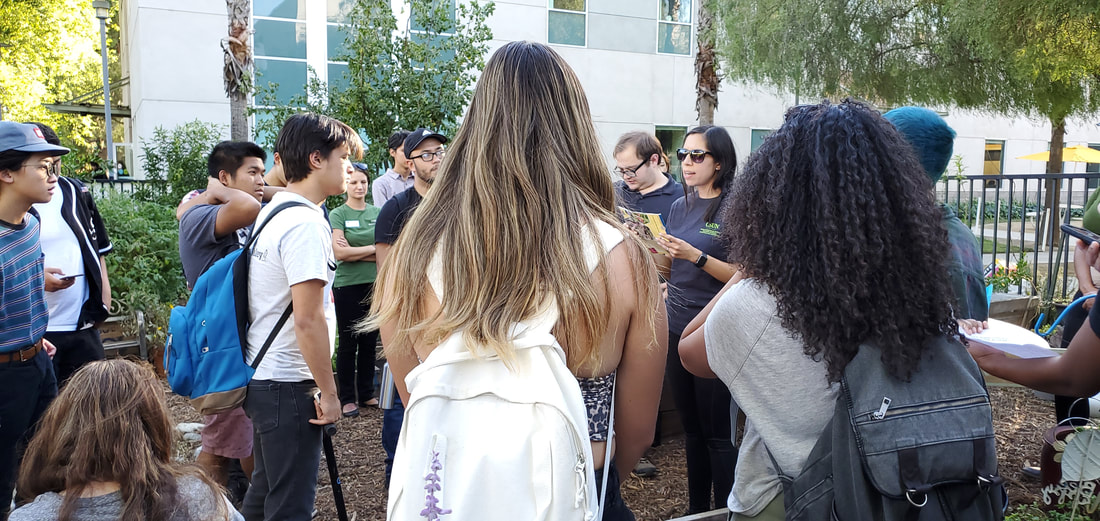
Permanent signs were installed at CSUN’s new pollinator garden. These signs are labels for the different pollinator-friendly plants found at the installation. They indicate the common and scientific name of each species, as well as the type of pollinator each species typically attracts.
Additionally, permanent signs were installed beside 17 planters around campus, identifying them as pollinator habitats planted with native species and protected from pesticide use.
Additional signage has been designed and ordered, which will denote certain areas as pollinator habitat, and will also feature CSUN’s status as a Bee Campus USA affiliate. These signs will be installed this year at certain locations across campus.
CSUN has implemented an Integrated Pest Management plan which applies to all 356 acres of campus, with the goal of minimizing pesticide use and toxicity to the greatest extent possible. CSUN does not use broad pesticide applications, instead utilizing spot treatment.




